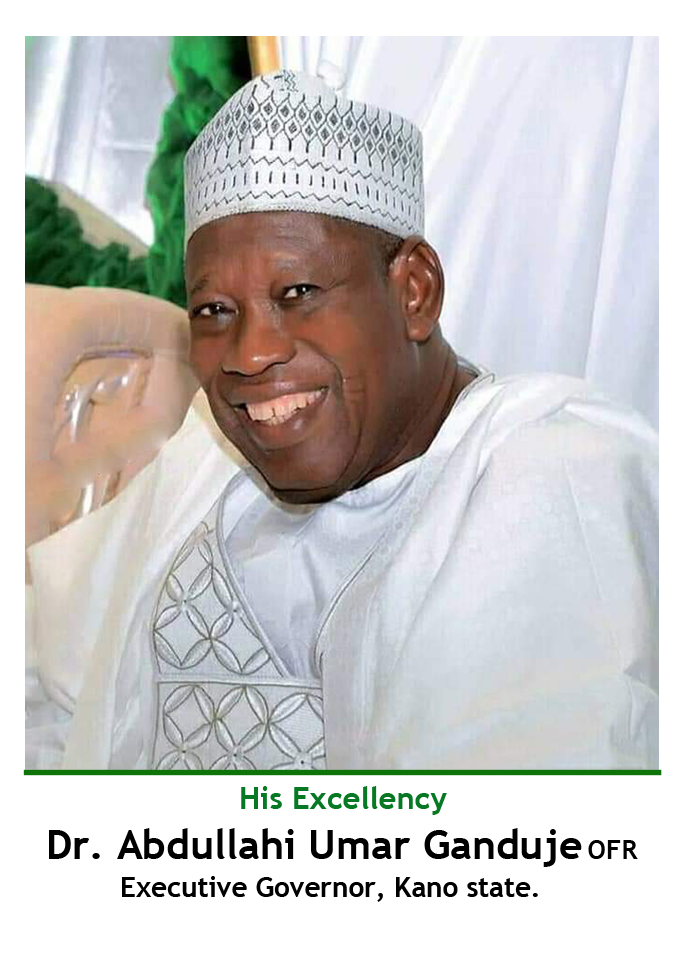Kano State
About Kano State

Kano State was created on May 27, 1967 from the Hadejia and Kano provinces of the old Northern Region of Nigeria. It has an estimated population of about thirteen million people as at 2016. The state covers a substantially fertile agricultural land in excess of twenty thousand square kilometres. This is two-thirds of Belgium and about half each of the Netherlands and Switzerland.
Present Kano city grew rapidly around as a Hausa Kingdom that settled at the Dala Hill over one thousand years ago. Bagauda was said to be the first king of Kano who reigned from 999 until 1063. By the year 1314, Islam was said to have been fully introduced to Kano by Malinke Scholars that originated from Mali Empire.
Kano city has always been a commercial city with the central Kurmi Market, in the heart of the city, having been operational since 1463. The first attraction to Kano was as a hub and center of trade and distribution between North Africa, the rest of West Africa and Central Africa. The city and the Kurmi Market served as an integral link for international trades in the centuries before the arrival of the British colonial masters. Until today, Kano remains the strongest distribution hub in Nigeria for all manufacturers and importers.
The economy of economy is dominated by commerce, manufacturing and agriculture. The informal sector is particularly strong with thousands of small and medium prices engaged in all aspects of industry and commerce. Kano State is the second largest industrial center in Nigeria and the largest in Northern Nigeria.
Kano State lies between latitudes 130 degrees North and 120 degrees South and longitudes 80 degrees West and 100 degrees East. The temperatures in Kano State ranges from as low as 10 degrees Celsius during the harmattan period to as high as 35 degree Celsius in other periods. There also basically two seasonal periods which comprises of about four months of rain and a long dry season inclusive of the harmattan. The vegetation of the State is semi-arid savanna.
The State comprises of forty-four administrative local government viz: Ajingi, Albasu, Bagwai, Bebeji, Bichi, Bunkure, Dala, Dambatta, Dawakin Kudu, Dawakin Tofa, Doguwa, Fagge, Gabasawa, Garko, Garun Mallam, Gaya, Gezawa, Gwale, Gwarzo, Kabo, Kano Municipal, Karaye, Kibiya, Kiru, Kumbotso, Kunchi, Kura, Madobi, Makoda, Minjibir, Nasarawa, Rano, Rimin Gado, Rogo, Shanono, Sumaila, Takai, Tarauni, Tofa, Tsanyawa, Tudun Wada, Ungogo, Warawa, Wudil
Since its creation, the following have served as governors/administrators:
